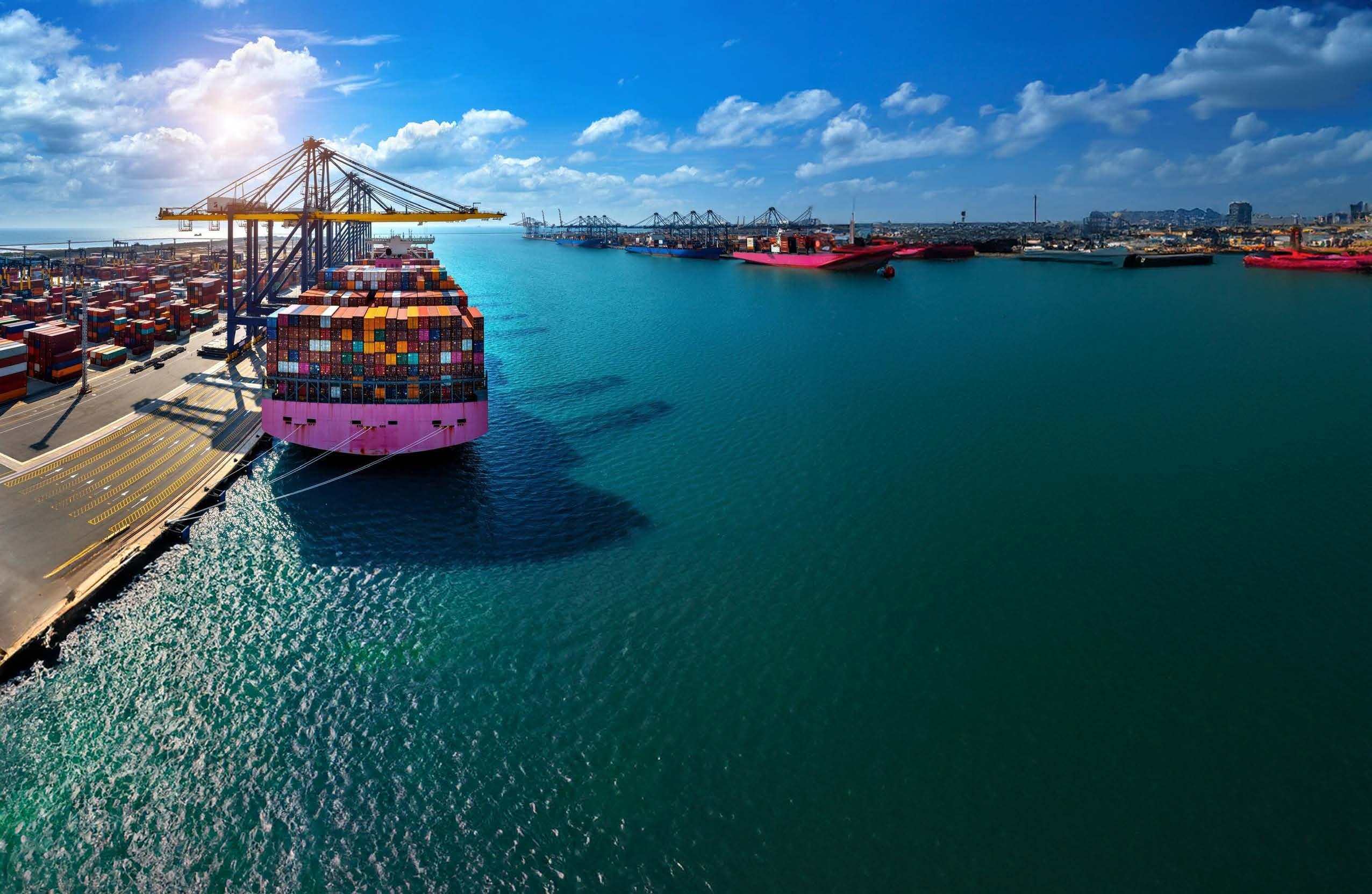
5 minute read
Navigating Africa's Trade and Export Landscape for Economic Prosperity
Africa, a continent often associated with its rich cultural diversity, stunning landscapes, and abundant wildlife, is also gaining recognition for its evolving trade and export landscape. In recent years, Africa has emerged as a region with vast potential for trade and export opportunities, offering strategic advantages to both local and international investors. With a growing middle class, expanding consumer markets, and increasing urbanization, the continent is becoming an attractive destination for businesses seeking to tap into its economic prospects.
This article explores Africa's trade and export opportunities, delving into key factors driving its growth and potential for partnerships. From expanding consumer markets to trade agreements, infrastructure development, digitalization, and agricultural exports, we will dissect the evolving trade ecosystem in Africa and highlight both the challenges and opportunities it presents.
Expanding Consumer Markets
One of the most prominent drivers of Africa's trade and export opportunities is its expanding consumer markets.
The continent's population is experiencing rapid growth, with projections suggesting that Africa will be home to over two billion people by 2050. This demographic shift is accompanied by an emerging middle class and increasing urbanization, leading to a surge in consumer demand.
As incomes rise and lifestyles evolve, African consumers are seeking a wide range of goods and services, including electronics, automobiles, clothing, and processed foods. This presents a significant opportunity for exporters looking to cater to the preferences and needs of the African market.
Intra-Africa Trade & AfCFTA
To harness the potential of its vast consumer base, Africa has been actively promoting intraAfrica trade. The African Continental Free Trade Area (AfCFTA), which officially commenced in January 2021, is a landmark initiative aimed at creating a single market for goods and services across the continent. AfCFTA seeks to reduce tariffs and trade barriers, facilitating the movement of goods and services within Africa.

While the full implementation of AfCFTA faces challenges, including logistical and regulatory hurdles, it holds the promise of boosting intra-Africa trade significantly. By fostering greater economic integration among African nations, AfCFTA has the potential to unlock new opportunities for businesses and entrepreneurs operating on the continent.
Trade Agreements and Partnerships
Africa's engagement in trade agreements and partnerships is another vital aspect of its trade and export landscape. These agreements open up access to international markets and create favorable conditions for exporters. Notable examples include the African Growth and Opportunity Act (AGOA) and trade agreements with the European Union (EU).
AGOA provides eligible African countries with duty-free access to the lucrative U.S. market, promoting exports of various products, including textiles, agricultural goods, and handicrafts. Similarly, trade agreements with the EU offer preferential access to European markets, fostering cross-border commerce between countries like Africa and Europe.
Investments in Infrastructure Development
The development of infrastructure plays a pivotal role in enhancing Africa's trade capabilities. Efficient logistics, transportation networks, and distribution systems are essential for exporters to reach domestic and global markets effectively. To address these needs, significant investments have been made in infrastructure projects.
Infrastructure development encompasses the construction of ports, roads, railways, airports, and telecommunications networks. These projects facilitate the movement of goods and reduce transit times, making trade more accessible and costeffective. Improved infrastructure also contributes to regional integration by connecting neighboring countries and promoting cross-border trade.

Digitalization and E-commerce
The digital transformation sweeping across Africa has revolutionized trade and export opportunities. The rise of digitalization and e-commerce has provided businesses with innovative ways to reach customers both domestically and internationally. Online platforms and marketplaces have enabled African businesses, including small and medium-sized enterprises (SMEs), to access a broader customer base.
E-commerce is particularly beneficial for exporters looking to expand their reach. It allows for the seamless exchange of goods and services, enabling businesses to connect with consumers worldwide. As internet penetration continues to grow across the continent, digital platforms offer a powerful tool for trade facilitation.
Agricultural Exports
Agriculture remains a cornerstone of Africa's trade and export sector. The continent boasts vast arable land and abundant resources for agricultural production. African countries have been increasing their exports of agricultural products, including cocoa, coffee, tea, fruits, and vegetables, to international markets.
Investments in modern farming practices, value addition, and sustainable agriculture have contributed to the growth of agricultural exports. As global demand for responsibly sourced and sustainable products rises, African exporters are well-positioned to supply these goods.
Challenges and Opportunities
While Africa's trade and export landscape hold immense promise, challenges persist. These challenges include trade barriers, regulatory complexities, infrastructure gaps, and the need for improved trade facilitation. Addressing these hurdles is essential to fully realizing the continent's export potential. Furthermore, opportunities for exporters extend beyond traditional sectors. Africa presents prospects in renewable energy, minerals and mining, services, and manufacturing. As the world increasingly values sustainability and responsible sourcing, African exporters can position themselves as reliable suppliers of environmentally friendly products.
Africa's journey toward becoming a trade and export powerhouse is marked by significant strides and transformative initiatives. Demographic shifts, trade agreements, infrastructure development, digitalization, and agricultural exports are reshaping the continent's trade ecosystem.
While challenges remain, Africa's trade and export opportunities are increasingly recognized on the global stage. As the continent continues to strengthen its trade ecosystem, it offers strategic opportunities for exporters looking to access its growing consumer markets and contribute to its economic development.

Investors, both local and international, have a unique chance to partner with talent in Africa, particularly in the fields of energy and technology, to harness the continent's potential fully. Collaborations and investments in these sectors can drive innovation, create jobs, and contribute to Africa's sustainable growth.
Africa's trade and export landscape are evolving rapidly, and with the right partnerships and investments, it has the potential to become a global trade hub, driving economic prosperity and improving the livelihoods of its people. The continent is on a transformative journey, and those who seize the opportunities it presents will be at the forefront of Africa's trade renaissance.






